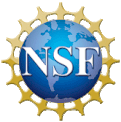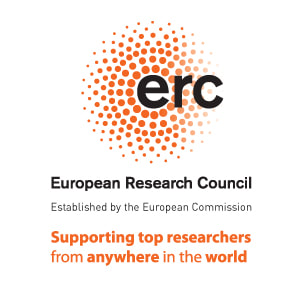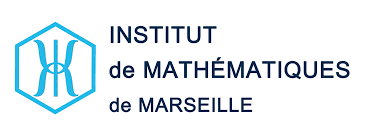Aspects of Non-Positive and Negative Curvature in Group Theory
Courbure négative et courbure négative ou nulle en théorie des groupes
17 – 21 June 2019
|
Scientific Committee
Comité scientifique Thomas Delzant (Université de Strasbourg) |
Organizing Committee
Comité d’organisation Kenneth Bromberg (University of Utah) |
|
This conference will focus on applications of non-positive and negative curvature to geometric group theory. The most well known examples of this are δ-hyperbolic and CAT(0)-groups. More recently, some of the techniques that have been used to study these groups have been imported to study groups that have some features of negative curvature but aren’t themselves negatively curved. For example, the mapping class group is neither δ-hyperbolic nor CAT(0) but major progress has been obtained in on our understanding of this group by studying its action on the δ-hyperbolic curve complex. A related group is Out(Fn), the group of automorphisms of the rank n free group and similar program is underway to understand it. More generally, large classes of groups have been identified that have certain features of negative curvature and this has been exploited to prove results which were heretofore only known in special cases. This conference will bring together a distinguished international group of mathematicians to report on current work and to explore future directions in this active and expanding area of research.
The conference will also be an opportunity to celebrate the Mladen Bestvina’s contributions to mathematics. |
Cette conférence se concentrera sur les applications de la courbure strictement négative et de la courbure négative ou nulle en géométrie des groupes. Les exemples les plus connus sont les groupes δ-hyperboliques et les groupes CAT(0). Récemment, certaines techniques qui sont utilisées pour ces groupes ont été importées pour étudier des groupes présentant certains aspects de courbure négative sans être eux-mêmes à courbure négative. Par exemple, le groupe modulaire (d’une surface) n’est ni δ-hyperbolique ni CAT(0), mais des progrès majeurs ont été obtenus dans notre compréhension de ce groupe en étudiant son action sur le complexe des courbes, qui est δ-hyperbolique. Un programme similaire est actuellement en cours pour comprendre le groupe Out(Fn) des automorphismes extérieurs du groupe libre de rang n. Plus généralement, on identifie aujourd’hui de vastes classes de groupes présentant certains aspects de courbure négative, que l’on sait exploiter pour démontrer des résultats jusqu’alors seulement connus dans des cas très particuliers. Cette conférence réunira une assemblée internationale de mathématiciens reconnus afin de présenter les travaux actuels et d’explorer les nouvelles directions de ce champ très actif de la recherche mathématique.
La conférence nous donnera aussi l’opportunité de rendre hommage à Mladen Bestvina pour ses contributions aux mathématiques. |
Yael Algom-Kfir (University of Haifa) Conformal dimension and free by cyclic groups
Martin Bridson (University of Oxford)
Indira Chatterji (Université Nice Sophia Antipolis)
Matt Clay (University of Arkansas) Right-angled Artin groups as normal subgroups of mapping class groups
Mark Feighn (Rutgers-Newark University) The conjugacy problem for polynomially growing elements of Out(F_n)
Koji Fujiwara (Kyoto University) Ends of negatively curved manifolds
Vincent Guirardel (Université de Rennes 1) Cocycle superrigidity from higher rank lattices to Out(F_N)
Ursula Hamenstädt (Rheinische Friedrich-Wilhelms-University Bonn) Artin groups and mapping class groups
Camille Horbez (CNRS / Université Paris-Sud) Measure equivalence rigidity of Out(F_n)
Kasia Jankiewicz (University of Chicago)
Ian Leary (University of Southampton)
Chris Leininger (University of Illinois at Urbana-Champaign) Weil-Petersson translation lengths
Lars Louder (University College London)
Frédéric Paulin (Université Paris-Sud) From Conway’s rivers to waterworlds through Bestvina-Savin’s oceans
Beatrice Pozzetti (Heidelberg University)
Piotr Przytycki (McGill University) Torsion groups do not act on 2-dimensional CAT(0) complexes
Eliyahu Rips (The Hebrew University of Jerusalem) Small cancellation theory for rings
Zlil Sela (The Hebrew University of Jerusalem) Basic conjectures and preliminary results in non-commutative algebraic geometry
Alessandro Sisto (ETH Zurich)
Juan Souto (Université de Rennes 1) Counting curves of given type, revisited
Jing Tao (University of Oklahoma)
Karen Vogtmann (University of Warwick) The rational Euler characteristic of Out(F_n)
Shmuel Weinberger (University of Chicago)







